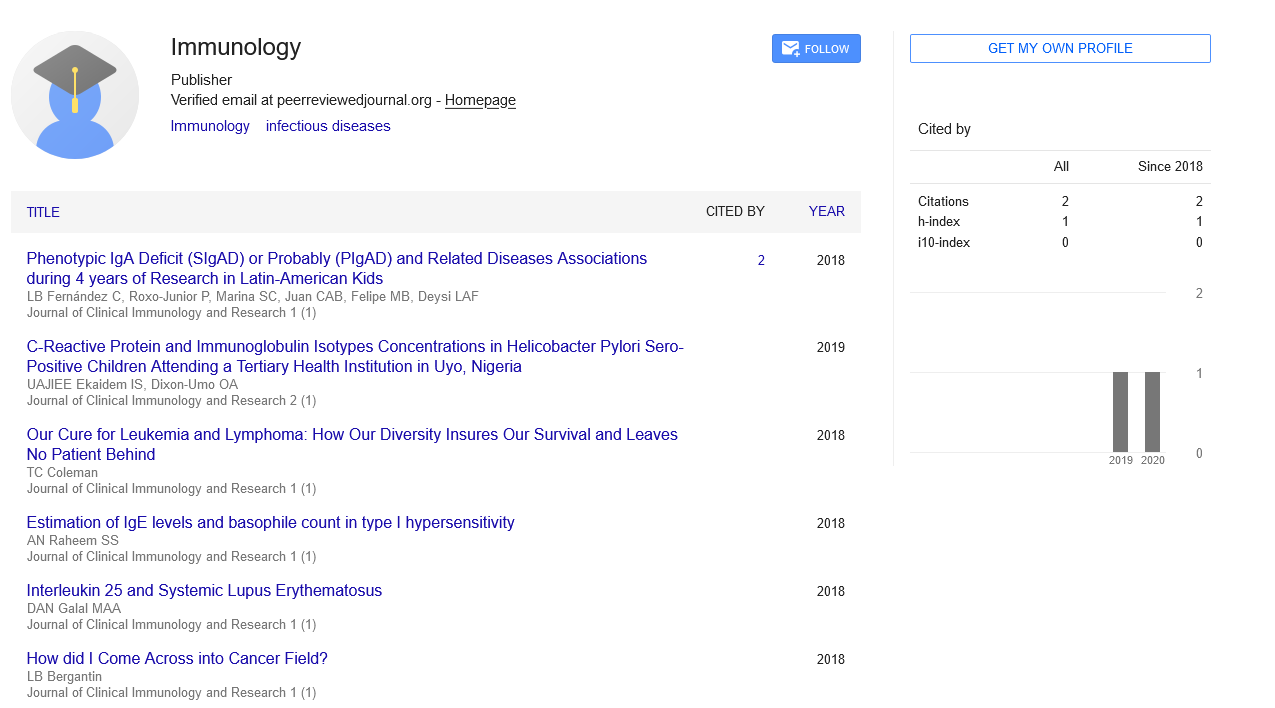Editorial, J Clin Immunol Res Vol: 3 Issue: 2
Types and Treatment of Hepatitis
Giulio (Filippo, Giacomo) Tarro*Baumont Bonelli for cancer research Chairman of the Committee on Biotechnologies and VirusSphere, WABT - UNESCO, Paris
*Corresponding Author : Giulio (Filippo, Giacomo) Tarro
President of the
Foundation de Baumont Bonelli for cancer research Chairman of the Committee
on Biotechnologies and VirusSphere, WABT - UNESCO, Paris
E-mail: Giulio.Tarro@gmail.com
Received date: July 01, 2020; Accepted date: July 15, 2020; Published date: July 22, 2020
Citation:Tarro G (2020) Types and Treatment of Hepatitis. J Clin Immunol Res 3:2. DOI: 10.37532/jcir.2020.3(2).e103
Abstract
-
Keywords: -
Introduction
Viral hepatitis ailment is an exceptionally endemic general medical issue, like other transferable sicknesses, including HIV, tuberculosis and jungle fever [1]. It is a contamination that causes liver aggravation and harm. Irritation is expanding that happens when tissues of the body become harmed or contaminated [2].
There are 5 hepatotropic infections (hepatitis A, B, C, D, and E) that specifically contaminate the liver. Acute hepatitis brought about by these infections may resolve without intercession or may form into ceaseless contamination in certain occasions. Nonhepatotropic infections target various organs in the body but on the other hand are known to cause hepatitis, in spite of the fact that these contaminations are regularly mild in immunocompetent hosts. The hugeness of nonhepatotropic infections is generally striking in immunocompromised hosts, especially in transplant patients [3].
Hepatitis A and hepatitis E normally spread through contact with food or water that has been contaminated by an infected individual's stool. These infections ordinarily cause just intense, or present moment, contaminations. In an intense disease, your body can ward off the contamination and the infection disappears. Individuals may likewise get hepatitis E by eating half-cooked pork, deer, or shellfish.
Hepatitis B, hepatitis C, and hepatitis D spread through contact with an infected person’s blood. Hepatitis B and D may likewise spread through contact with other body liquids. These infections can cause intense and ceaseless, or enduring, contaminations. Chronic hepatitis happens when your body can't fend off the hepatitis infection and the infection doesn't disappear. Early determination and treatment of chronic hepatitis can forestall or bring down your odds of building up these difficulties. This contact can happen from multiple points of view, including sharing medication needles or having unprotected sex.
At the point when specialists can't discover the reason for an individual's hepatitis, they may call this condition non-A- E hepatitis or hepatitis X [2].
Hepatitis A Treatment
There is no particular treatment for intense hepatitis A disease. Along these lines, anticipation is the key. A viable antibody is accessible and suggested for anybody with liver infection. It likewise is prescribed for individuals wanting to venture out to regions of the reality where sanitation might be not exactly ideal.
Before accepting the immunization, the patient as a rule will have a blood test to check whether counter acting agent to the infection is available as of now, in which case inoculation is pointless.
Hepatitis B Treatment
Around 25 percent of individuals with interminable hepatitis B can be restored with a medication called pegylated interferon-alpha, which is taken as a week after week infusion for a half year. The option is concealment of the infection with oral meds, for example, lamivudine and adefovir. Concealment is suggested for patients with raised viral levels and proof of propelling liver infection.
Hepatitis C Treatment
The best treatment for hepatitis C is a medication blend comprising of pegylated interferon and ribavirin. Pegylated interferon is accepted week after week as an infusion and ribavirin is a twice day by day tablet. The treatment is a type of chemotherapy and the capacity to endure it changes generally for every individual.
In the vast majority, interferon-ribavirin causes influenza like indications with solid hurts, peevishness, loss of hunger and misery. Rashes and going bald likewise may happen. Interferon and ribavirin both decrease platelet checks, which may require portion decrease or cessation of treatment. Ordinary research center testing during the treatment is fundamental.
Liver Transplantation
Liver transplant might be a possibility for individuals whose hepatitis advances to liver disappointment and who neglect to react to treatment or can't endure treatment [4].
References
- Adesina E, Oyero O, Okorie N, Amodu L, Adeyeye B, et al. (2020) Data on information sources, knowledge and practice on hepatitis B virus in southwest Nigeria. Data Brief 30.
- https://www.niddk.nih.gov/health-information/liver-disease/viral-hepatitis/what-is-viral-hepatitis
- Cheung A, Kwo P (2020) Viral Hepatitis Other than A, B, and C:Evaluation and Management. Clinics in Liver Disease 24:405-419.
- https://www.ucsfhealth.org/conditions/viral-hepatitis/treatment
 Spanish
Spanish  Chinese
Chinese  Russian
Russian  German
German  French
French  Japanese
Japanese  Portuguese
Portuguese  Hindi
Hindi 